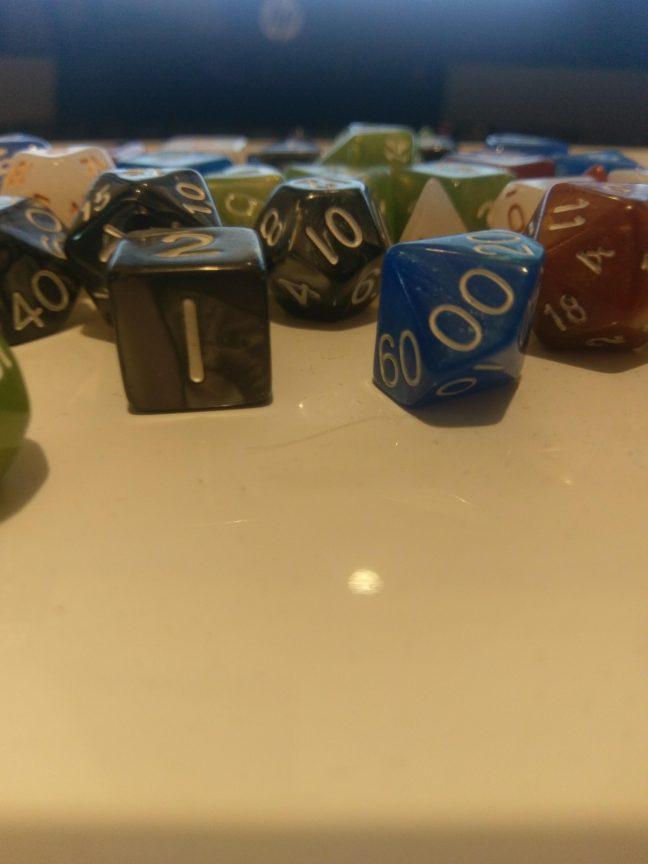He makes his way down the empty hallways of Engineering Hall, periodically checking his phone and scanning door numbers as he walks past. After finding the right room, adorned with a hastily written sign, “room occupied, 7-10 p.m.,” he quietly enters, nods to the other four people in the room and takes his place at the table.
The five of them have spoken before online, but have only ever met face to face once before. Who they are and what they do outside that room doesn’t really matter. A man sitting at the head of the table pulls out his laptop, dims the lights and starts a Spotify playlist of various high fantasy soundtracks. They’re no longer five students on University of Wisconsin campus anymore, they have become adventurers on the path to glory in a faraway world. This is Dungeons & Dragons.
The open-ended tabletop role-playing game published by Wizards of the Coast has been on the fringe of “geek” culture since its inception in 1974. D&D is made to be limited only by a light framework of rules, classes and dice rolls while thriving on the imaginations of the players and their “Dungeon Master.” The curator of a game session is the same person who tells the story and controls the non-player characters and enemies.
After almost 50 years of being relegated to basements and dark back rooms, D&D has seen more mainstream popularity than ever in the past few years. But why?

One of the main barriers to entry for the series thus far has been the price point. Rulebooks, guides and expansion content has historically been extremely expensive, as the player’s handbook and other guides are often $50 or more. But the internet has been a great resource for those looking to start from scratch, with online forums, programs and content made by fans helping new players figure out the rules and get started.
Another problem the internet solves is finding interested players. Before you needed to coax friends or acquaintances into playing together and struggle to schedule sessions, now there are websites to find other people to play with and programs to allow for playing with friends online. There is no longer a need for getting everyone in the same room.
Many groups are made up of people who have not met before, and in a game like D&D, that is completely fine. You assume the character you create when you play, solving problems with other heroes of different backgrounds, swordsman, archers, thieves, monks and lute playing bards alike.

There also seems to be a shift in mainstream popularity for games like D&D in popular culture. The popular Netflix original show Stranger Things introduced the game to a mainstream audience, bringing the dice rolling, role-playing mechanics into the spotlight and normalizing what many once considered “nerdy.”
Real-play podcasts like The Adventure Zone, in which three brothers and their father play D&D and other role-playing games, telling well-crafted and continuously shifting stories to audiences of thousands are seeing more popularity as well, familiarizing people with the rules and getting them in a creative mindset.
At UW and college campuses across the country, the game continues to build steam. People who would have been before dismissive of D&D are now looking for resources to learn the rules while finding other new and interested players to jump in. Wizards of the Coast are welcoming these new fans.
With the recent release of D&D Beyond, an official compendium of rules and character creation sheets, it appears the game’s publishers are finally embracing a less restrictive business model and making their resources more accessible.
To those interested in starting or joining their own adventure, it is highly recommended. With a few minutes of looking at local facebook groups or subreddits, there are always people looking to welcome new heroes to their adventure. All it takes is some dice, a pen and paper and an open mind.


